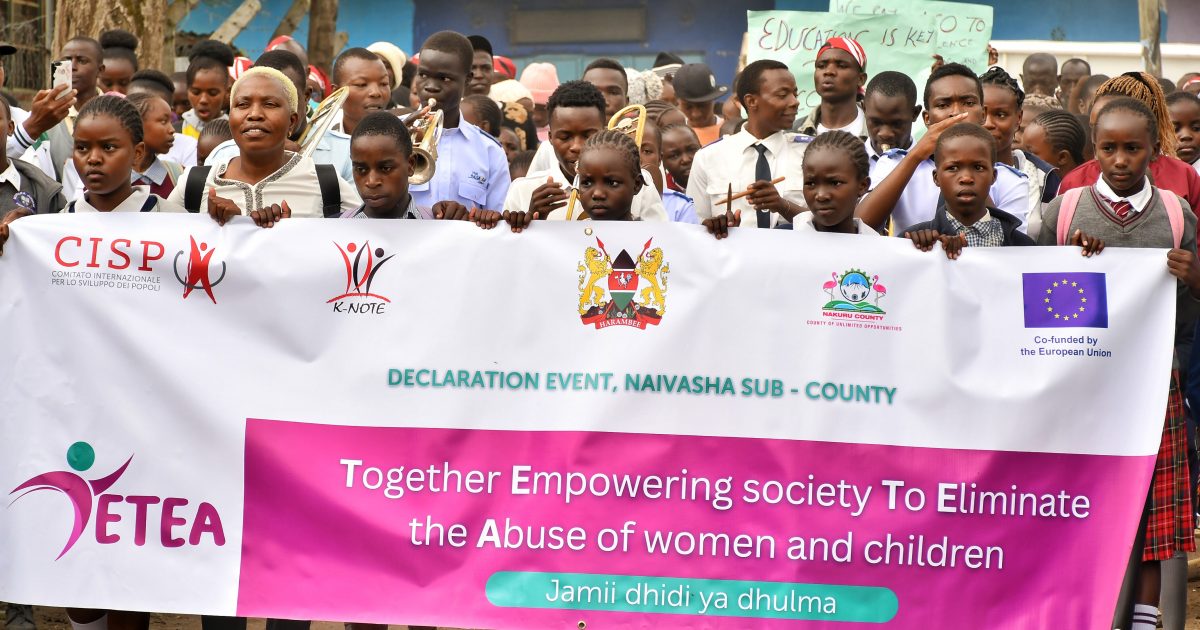Stakeholders overseeing the rights of children have urged Nakuru County Government to develop a child protection policy that would help address and reign in on the worrying trend of child sexual abuse, violence and exploitation.
The stakeholders noted that even though the country has put into law the Sexual Offenses Act (2006) and the Children Act (2022), there was need for the county to implement policies that would address concerns within its borders including allocation of adequate budgetary resources and capacity building of key agencies.
According to Nakuru County Head of Children Services Alice Wanyonyi, last year, the county recorded over 9,000 cases of child abuse, sexual exploitation, early marriages and neglect with informal settlements most affected.
Ms. Wanyonyi said the statistics recorded could be higher as cases that occurred in far flung areas went unreported with others compromised by close family relatives through Kangaroo courts, as victims lived with the trauma.
The Children Officer regretted the rising trend of child abuse, molestation, defilement and neglect which have been driven by alcohol and substance abuse in the children’s neighbourhoods with most cases perpetuated by people known to them.
Ms. Wanyonyi said the development and implementation of a child protection policy would facilitate prompt reporting of cases to authorities, increase community awareness as well allocate funds to children care facilities and rescue centres.
Speaking in Naivasha during a sensitization activity by KNOTE, a non-governmental organization, she said the policy would also address issues of child trafficking with information indicating that Nakuru County is a key transit town of trafficked children destined for Nairobi, Mombasa and other neighbouring countries.
“The government has brought on board child protection volunteers to sensitize and create awareness in the communities to ensure the rights of children are equally protected as championed by the state laws,” said Ms. Wanyonyi.
On her part, County head of Gender based desk Jessicah Mung’au said the county continued to register increased cases of child defilement and violence among young intimate partners mostly driven by vulnerability of age, culture and religion beliefs.
Ms. Mung’au said the county has put in place measures to address the worrying concerns including creating awareness, training health personnel and police, to accelerate legal redress for the victims and ensure perpetrators face the full force of the law.
She noted that Naivasha was identified as a key hotspot area for cases involving children due to influx of informal settlements and tens of flower farms with rural areas recorded cases of Female Genital Mutilation (FGM).
According to John Kinuthia from Naivasha Gender Based Cluster, cases of defilement and molestation have been on the rise mostly in informal settlements if Karagita, Mirera, Sunctuary,Kihoto, Kabati and Mai Mahiu town.

Kinuthia said the project championed by KNOTE under tetea theme seeks to reverse the worrying trend with communities sensitized to report cases to police gender desks that have been established to ensure victims get justice and perpetrators faced the law.
On her part, Elizabeth Wanjiru, a community health promoter at Maella ward in Naivasha said sexual abuse, early marriages and retrogressive cultural practices were some of the major challenges facing children.
She attributed the rising incidents to abuse of illicit alcohol and other substances including khat, bhang among the youth adding that the government must accelerate the war on illicit drugs and ensure perpetrators are brought to book.
Maureen Pacho from CISP, a NGO, said community declaration towards the fight for the rights of children is a key commitment to safeguarding the future of children in the education system and society as a whole.
“Communities must be emboldened and sensitized to take action and protect children from early marriages, sex exploitation, violence and teenage pregnancies going forward,” said Pacho.
By Erastus Gichohi


